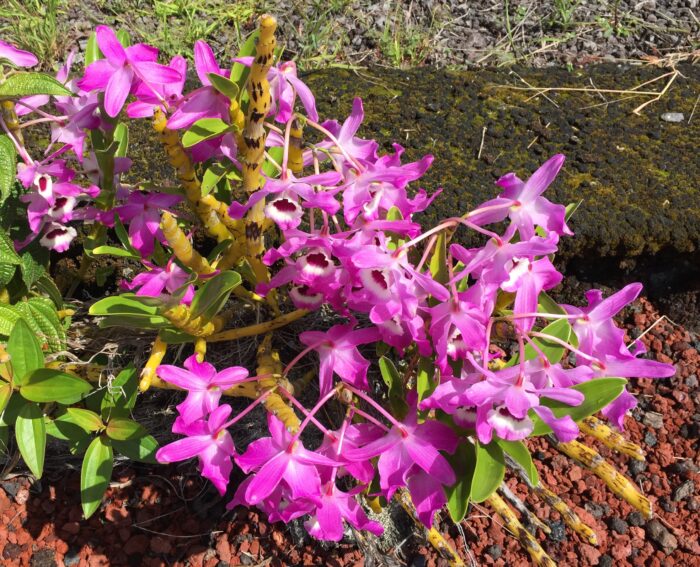
In Gilbert and Sullivan’s Mikado, Nanki-Poo sings about flowers, because he’s happy about his upcoming marriage to the lovely Yum-Yum, which for him was as wonderful as the flowers that bloom in the spring.
The flowers that bloom in the spring, Tra la,

Breathe promise of merry sunshine –
As we merrily dance and we sing, Tra la,
We welcome the hope that they bring, Tra la,
Of a summer of roses and wine.
And that’s what we mean when we say that a thing
Is welcome as flowers that bloom in the spring.
Tra la la la la — Tra la la la la — Tra la la la la la!
Do Flowers Make Us Happy?

The association of flowers with happiness is a fact recently proven by researcher Jeannette Haviland-Jones. In her experiment, she sent unsuspecting women three different types of gifts – a candle, a fruit basket, or a bouquet of flowers. Everyone who received the flowers responded to the gift with a Duchenne smile. This is a particular type of smile indicating true enjoyment. More than a smile that lifts the corners of a person’s lips, a Duchenne smile reaches a person’s eyes until the corners crinkle. A Duchenne smile elevates a person’s mood.
Nancy Etcoff’s research found that having flowers in the home can bring residents increased personal well-being with less worry and anxiety.
How Do Flowers Cause These Effects?
Apparently, smelling flowers reduces, our levels of stress-causing cortisol while stimulating the production of happy chemicals: dopamine, oxytocin, and serotonin.
In general, we see flowers as a reward, and if someone gives flowers as a gift, we know we’re special.
And that’s what we mean when we say that a thing is welcome as flowers that bloom in the spring.
🌺. 🌸. 🌼
Illustrations
Smiling Face With Smiling Eyes Emoji. Attribution: Vincent Le Moign
Nanki-Poo
Rose by Gunnar Ries
Gallery Flower Photos by Author
Loretta G Breuning. “Why Flowers Make Us Happy.” Psychology Today. June 21 2017.
Jeannette Haviland-Jones, et. Al. “An Environmental Approach to Postive Emotion: Flowers.” Evolutionary Psychology. 2005. 3: 104-132.
Leonard Perry. “Relieve Stress with Flowers.” University of Vermont.

Sandra Wagner-Wright holds the doctoral degree in history and taught women’s and global history at the University of Hawai`i. Sandra travels for her research, most recently to Salem, Massachusetts, the setting of her new Salem Stories series. She also enjoys traveling for new experiences. Recent trips include Antarctica and a river cruise on the Rhine from Amsterdam to Basel.
Sandra particularly likes writing about strong women who make a difference. She lives in Hilo, Hawai`i with her family and writes a blog relating to history, travel, and the idiosyncrasies of life.




